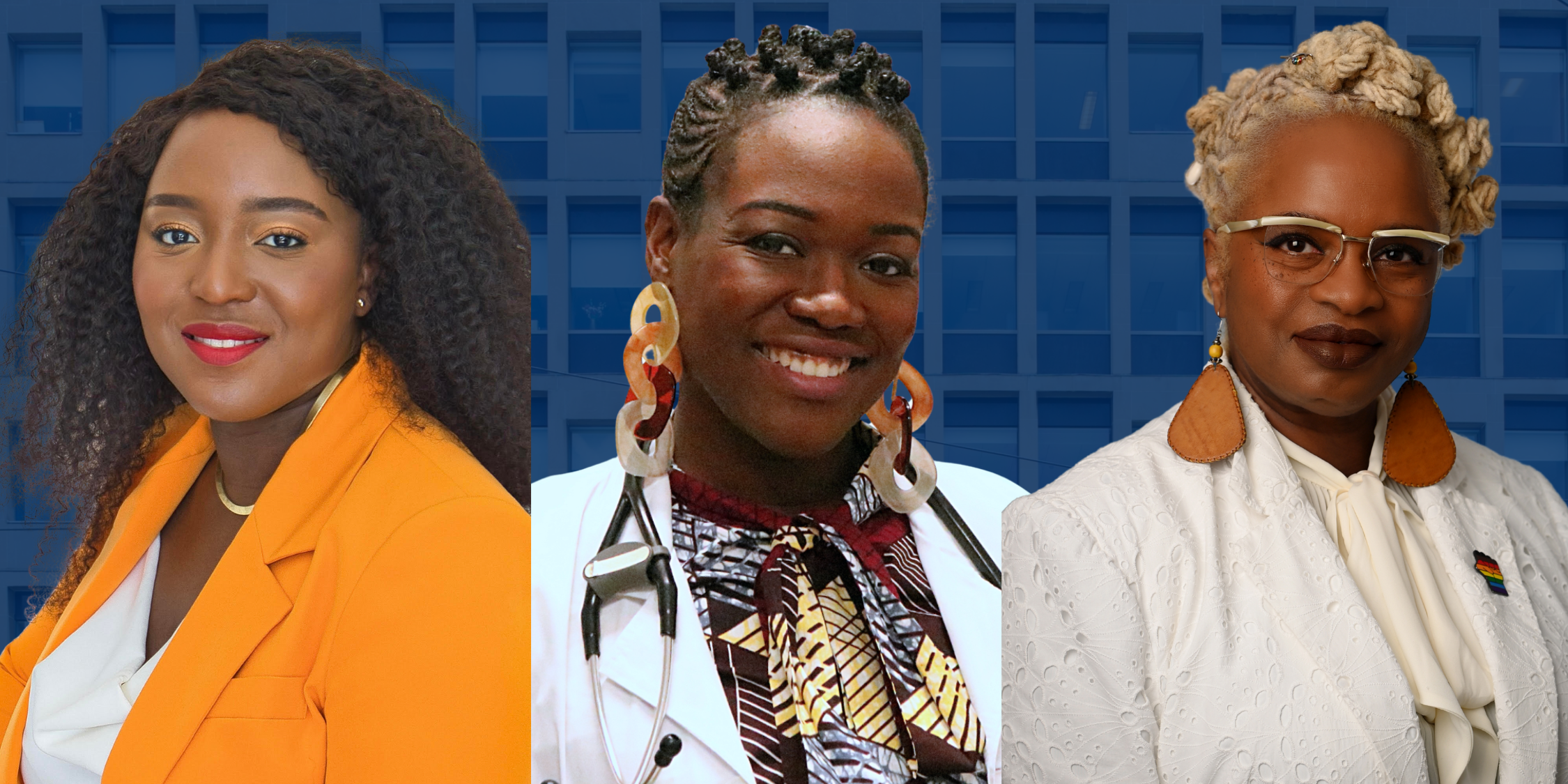New French Black Health Primer Provides Anti-Racism Education for Francophone Health Professionals
April 23/2025
The French Black Health Primer aims to build on the success of the Black Health Primer, launched in 2024, and reach the Francophone health community.
By Ishani Nath

Sume Ndumbe-Eyoh (DLSPH), Onye Nnorom (DLSPH) and OmiSoore Dryden (Dalhousie)
For the first time, Francophone health professionals across Canada will have access to the French Black Health Primer, an online course designed to address Black health and the effects of anti-Black racism in Canadian healthcare.
The English Black Health Primer, an online course covering Black health and anti-Black racism in medicine and public health, launched in March 2024. One year later, the founders are now releasing the course in French, enabling Francophone medical and health learners, faculty, educators and healthcare practitioners to improve care for Black patients.
Quebec is home to more than one quarter of Canada’s Black population, and 20 percent of Canada’s Black population identifies French as their first language. Quebec is also home to three French-language medical schools.
“We wanted to ensure that people could access this in the language in which they are the most comfortable. And we know that folks who have French as a first language are often accessing resources and materials in English,” says DLSPH Assistant Professor Sume Ndumbe-Eyoh.
Ndumbe-Eyoh created the Black Health Primer alongside family physician and DLSPH Assistant Professor Onye Nnorom and OmiSoore Dryden, a Professor in the Faculty of Medicine at Dalhousie University and the former James R. Johnston Chair in Black Canadian Studies. The founders note that offering the Black Health Primer in both of Canada’s official languages has always been part of the plan — and based on the response the English version received in its first year, this tool is clearly needed.
The Black Health Primer, one year later
The Black Health Primer was designed to address gaps in medicine, public health and other health fields and improve the care experienced by Black patients and communities. While there are some resources and programs to learn about Black health in Canada, the Black Health Primer’s founders emphasize that, to their knowledge, this online course is the only national resource available in English and French that is tailored for, and accessible to health professionals and health learners across Canada.
“The impact has been spectacular,” says Dryden, who uses the Primer with her medical students at Dalhousie University. “Both learners and practitioners have found the Primer to be insightful, educational, and inspiring as they make commitments to actively address medical racism.”
Since its 2024 launch, the Black Health Primer has been accredited by the College of Family Physicians of Canada and the Royal College of Physicians and Surgeons of Canada and endorsed by the Association of Faculties of Medicine of Canada. In its first year, more than 1,000 individuals from more than 80 different universities, hospitals, community health centres and public health units signed up for the course.
Seeing the range of learners, which includes students, public health practitioners, social workers, researchers, educators, midwives, physicians, dietitians and health promoters, was particularly meaningful for Ndumbe-Eyoh.
“It matters, because when we interact with the health system, we do so with a whole range of professionals,” says Ndumbe-Eyoh, Executive Director of the Black Health Education Collaborative, explaining that it is essential that this knowledge reaches people across all spaces that impact Black health.
Introducing the new French Black Health Primer
The French version of this Black health education tool was unveiled on March 21, 2025, but the experience of French-speaking healthcare providers and Black patients shaped the Black Health Primer since its inception.
“When we were doing the development and piloting the course, we made sure we had folks who were Francophone, and who are based in Quebec as part of the work,” says Ndumbe-Eyoh. “Francophones have always informed what this course looks like, and the intention had always been to have a French language version available.”
The curriculum is identical in both versions, covering topics like Canada’s history of anti-Black racism, the structural and social determinants of Black health and ways to disrupt anti-Black racism through individual practice. But having this program available in French makes these lessons available to a greater population of healthcare providers and learners.
“It is always important to have accessible information, and this includes the Primer available in French,” says Dryden.
Having seen the impact of the English version of the Black Health Primer, the founders note that there is potential for the French version to promote important conversations and systemic change within Francophone health systems.
As Nnorom puts it, having the Black Health Primer available in both English and now French is a crucial step towards “ensuring that all Black people in Canada, regardless of language, receive compassionate, informed, and equitable care.”